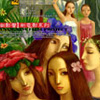Getting to the bottom
Updated: 2008-03-07 14:37

It seems that Stuart Eunson was light years ahead of the pack when he founded Arabica Roasters back in 1994. At a time when much of the world's business community would have sold their grannies to plant a flag on the Chinese Mainland, Eunson was one of the few reaching out to the small niche of conscientious consumers by importing fair trade beans to help fuel China's burgeoning coffee culture.
All of Eunson's imported produce carry the Fairtrade insignia–a seal of approval awarded to products that adhere to strict guidelines laid down by the internationally recognised Fairtrade Labelling Organisation. Suppliers approved by the F.L.O offer fair compensation to farmers and producers that covers their production costs and contributes to social and economic development projects in their communities.
The fair trade concept has been subject to a wave of negative coverage in the Western press, derided as a marketing ploy to attract the cash of affluent lefty-liberals. Even in Shanghai, customers of the numerous Starbucks franchises will find ample literature on Starbucks' fair trade initiatives, though F.L.O. certified produce only amounts to a small percentage of the brand's overall consumption.
"Maybe the system is not perfect," concedes Shanghai native Anthony Zhao, "but at least we're doing something for the environment and communities. It's better than doing nothing." Zhao the General Manager of Effigie Cafè has been responsible for stocking the new Effigie Cafe on Changle Lu with Eunson's lines and has seen the popularity of F.L.O. approved brands soar in recent years. Effigie stands alongside Laris and OStore as longtime supporters of Arabica Roasters.
Despite considerable success, Eunson's product is without competition in the domestic market. "We are the first and only registered fair trade company in China at the moment," he says. Perhaps it's a sign of the relative infancy of the Chinese coffee scene that promoting fair trade (in concept and as a marketing strategy) has not yet become common place. The day may come when Shanghai's homegrown coffee establishments start trumpeting their ethical beans to the general public, but until that time it's what's in the cup that is keeping the customers happy.
"For Chinese customers, fair trade is an unfamiliar concept, but they like the flavor," sums up Zhao. "It is in no way sour or bitter. Most restaurants in the city who use this brand use it purely because it's so good." And therein lies the appeal. An ethos worthy enough to grab our attention, but a product good enough to keep us coming back for more.
|
|
|
||
|
||
| Eating out:
Salmon satiation
Bars&Cafes: Hot DJs come Weekend&Holiday: MC Gee visits Beijing Shopping: By appointment only What's on: What's new |
|
||
| Eating out:
Nice is Oh-So-Nic
Bars&Cafes: The film and coffee bar Weekend&Holiday: Get ready to rock with Maroon 5 Shopping: Welcoming the season What's on: When Marilyn meets China |

